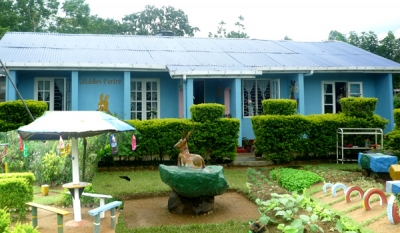Records maintained by the Plantation Human Development Trust (PHDT) show that 936 or over 60% of Child Development Centres (CDCs) of Regional Plantation Company (RPC) estates have been upgraded since 1993, just one year after privatization of estates by the government.
Standards at 917 of the total of 1,493 or more than 60% of all (CDCs) within the 396 estates managed by the RPCs have been classified as ‘Ideal Child Development Centres’ by the PHDT, a tripartite organisation comprising RPCs, Trade Unions and the Government.
In 2011 alone, 73 CDCs were upgraded to standards classified by the PHDT as ‘ideal’ based on 10 criteria developed by the PHDT.
Recognising the benefit of early childhood development, which was severely lacking in the pre-privatisation period, the PHDT together with estate management and several Non-Governmental Organisations and charitable funds, developed the crèches, employing largely trained and qualified Child Development Officers, in keeping with benchmarks and high standards maintained across the rest of the country.
“Infrastructure dedicated to childcare at Regional Plantation Company-managed estates have evolved enormously since privatization of estates, particularly due to the dedication of the PHDT,” Roshan Rajadurai, Chairman of the Planters’ Association of Ceylon – which represents 22 Regional Plantations Companies (RPCs) said.
“It is most encouraging that despite financial constraints imposed by a highly challenging business environment, a number of RPCs have gone beyond the call of duty and invested substantially in further improving childcare-related facilities.”
Mothers on estates are entitled to statutory maternity leave and a child gets enrolled at a CDC at the tender age of four/five months and is in the care of the Child Development Officer, until he or she is of the age to begin school.
Tea plucker mothers are usually stationed within very close proximity to the CDCs to allow for easy and quick accessibility for breast feeding or when the child is sick.
Elpitiya Plantations PLC, a winner of the All-Island Child Development Centre Competition organised by the PHDT, estimates that the company spent Rs. 24 million in 2011 alone to improve facilities at Child Development Centres in its estates.
Many Regional Plantation Companies also provide nutritious mid-day meals free of charge to children who attend CDCs within their estates.
A key part of the overall improved facilities at CDCs include the capacity building of the CDOs. Of the 1,350 Child Development Officers functioning in RPC estates, 563 have nationally-recognized diplomas on the subject and a further 165 are expected to receive their national diplomas shortly.
In addition to developments relating to Child Development Officers and Child Development Centres, Regional Plantation Companies (RPCs), with the support of the PHDT and other stakeholders, have succeeded in substantially improving living standards of residents of RPC estates since privatization.
Approximately 60% of houses of estate residents in RPC-managed estates has been newly constructed or upgraded with various infrastructure elements since privatization of the estate sector.
Vast improvements have been achieved in many other indicators including those relating to education, water, financial literacy, female empowerment and sanitation and health.
Some RPCs have even received international recognition for initiatives undertaken on behalf of the community resident within the estates managed by them.























